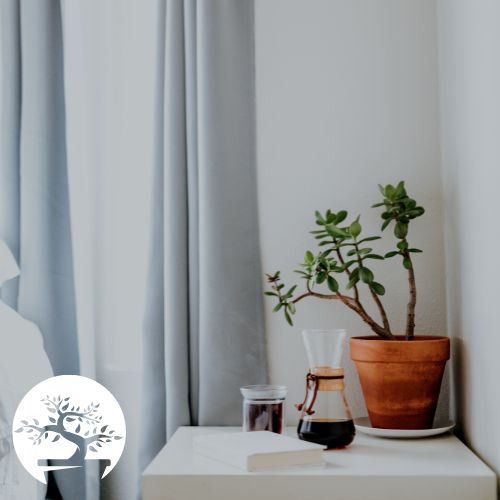Bonsai trees have been planted and cultivated for thousands of years across different cultures. Unfortunately, these days, many people don’t stop to think about what bonsai trees represent, which we believe is a shame!
Today, we’ll explain the bonsai tree’s relation to luck and the ancient Chinese art of Feng Shui. By understanding these ideas, you’ll be able to get the most out of your bonsai tree.
Do People Believe Bonsai Are Good Luck?
In Japanese Culture, bonsai trees are thought to bring good luck to their owners. Therefore, by introducing a bonsai tree to your space and continuing to care for it, it is believed that luck will naturally gravitate towards you.
In China, bonsai trees play a vital role in the process of “Feng Shui,” which is something we will touch on later on. Good Feng Shui in a space supposedly allows energy to flow without being hindered, and good luck follows energy closely. Although Feng Shui isn’t grounded in scientific evidence, it’s a fascinating idea to explore.
Across Asian cultures, miniature trees are also believed to attract wealth. Owning a bonsai tree is seen as a way to double your fortune. This is especially true if you grow one of the specific “money trees” as your bonsai, such as the Money Plant itself.
Bonsai Trees In Feng Shui
Feng Shui is a part of Chinese culture that governs spatial arrangement and the natural flow of energy, or Chi. It is thought that you can create positive energy flows around your home by balancing the different elements of a space.
There are a few essential Feng Shui rules that should be followed. These include being tidy and organized, separating work and rest areas, and having an understanding of how colors interact with one another.
Bonsai trees can act as a Feng Shui element by introducing life and vitality into a space. However, certain bonsai trees, such as the Money Tree, are considered lucky when they are correctly balanced and in harmony with the home.
Do Bonsai Trees Clean The Air?
Like all living plants, bonsai trees absorb carbon dioxide and release oxygen. However, every bonsai tree produces a different amount of oxygen, depending on its size, age, and the current time of year. For this reason, particular bonsai, such as the Ficus tree, are known as air-purifying plants.
As well as removing carbon dioxide from the atmosphere, bonsai trees can absorb other impurities. Of course, a bonsai tree’s effects are very subtle compared to an actual air filter, but the plant will be cleaning your air in some way.
Are Bonsai Trees Good For Your Health?
Living in an environment with clean air is a bonus for your health. The more bonsai trees and plants you have in a space, the more significant impact they will have on the air quality.
Keeping a bonsai plant healthy isn’t just beneficial to physical health. Dedicating yourself to caring for plants can boost your mental well-being dramatically. It’s a great way to escape everyday life’s stresses and do something rewarding.
Studies have also found that keeping indoor plants maintains the humidity of a space. This can reduce the chance of developing a sore throat, cough, or dry skin. A bonsai tree that can provide this range of benefits is quite impressive!
Is It Good To Have A Bonsai Tree In Your Bedroom?
For all the health reasons we have stated above, a bonsai tree is an excellent addition to any bedroom. They’re also fantastic decorative items and add immediate vitality and happiness to your space.
Do Bonsai Trees Bring Luck To Your Home?
There’s no scientific basis for a bonsai bringing good luck to your home. Some people may believe in good and bad Feng Shui, while others appreciate the tree’s symbolic meaning.
One thing to consider is the relationship of luck to health and well-being. Someone healthy and happy is much more likely to be able to strive towards their goals. Of course, you might not consider this to be true “luck,” but there’s something to be said for a bonsai’s ability to induce a positive mindset.
Can Bonsai Trees Ever Bring Bad Luck?
Some people, such as those who follow the Vastu Shastra texts, believe that bonsai trees represent stunted growth and should never be placed inside the home. In other cultures, failing to care for your plants properly can also introduce bad luck into the home. However, there’s no evidence to back these thoughts up.
Which Bonsai Tree Is The Luckiest?
There are many types of bonsai, each of which is purported to bring positive energy and good fortune into the home. However, there is a variety of bonsai that is specifically known for providing luck and prosperity, if this is your belief.
The Miniature Jade Plant bonsai is the best choice if you want to add good luck charms to your home. This bonsai tree absorbs more carbon dioxide than other varieties and is often called the “Magical Clean Air Tree.” However, while it’s undoubtedly beautiful, unsurprisingly, no scientific research exists to suggest it brings good luck!
What Does A Bonsai Tree Symbolise?
A bonsai symbolizes peace, order, balance, and everything good in nature. Every species of bonsai has its unique meaning and story to tell. For this reason, you can always find a bonsai tree that aligns with your outlook on life.
Some people, such as Zen Buddhists, believe that the bonsai symbolizes meditation and contemplation. The bonsai tree is finely balanced in nature – sure of its place but never demanding of it, so it’s no surprise that it’s generally considered a lucky plant.
